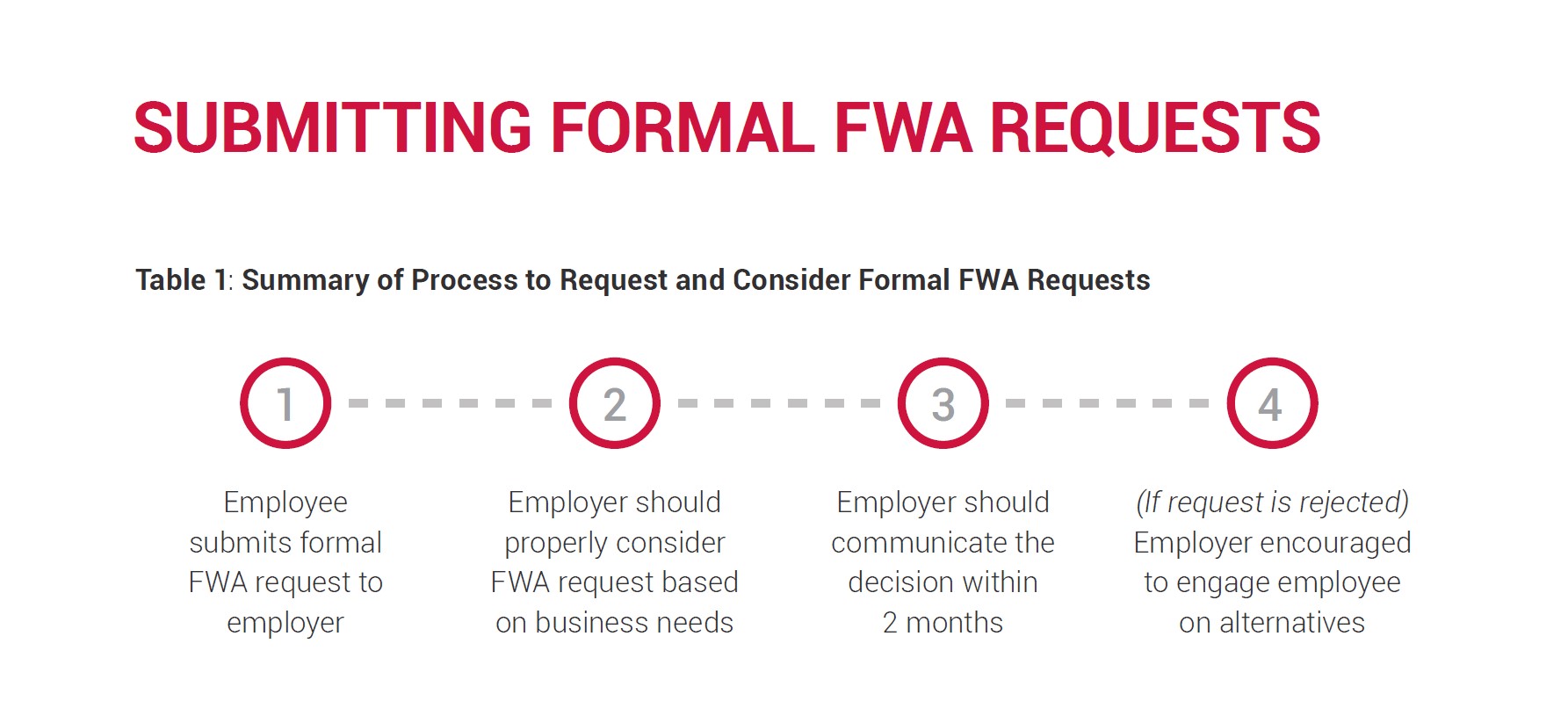What is considered a formal FWA request?
Under the TG-FWAR, employers are required to adopt a process for the submission and management of formal FWA requests, to harness the advantages of FWAs for your workforce and organisation. This process should inform employees of the information that should be included in a formal written FWA request, such as:
- The date of the request
- The FWA requested for, including its expected frequency and duration
- Reason for the FWA request
- Requested start date and end date (if relevant)
For greater efficiency, employers may provide a form/template for employees to fill in the key details required for a formal FWA request (Please refer to the link below for a template).
Some employers may have an existing effective process in place to manage FWA requests. If you already engage in discussions when employees make FWA requests, these formal and non-formal practices should continue if they work well.
In particular, you should review your formal FWA request and management process, to ensure it is aligned with the TG-FWAR. If you do not have any existing process, you will still need to properly consider and respond to a formal FWA request, as stated in the Tripartite Guidelines.
Employer Resources:
Employers may use the Template for FWA Request Form from the TG-FWAR
Employers may adapt this Template FWA Policy for their organisation

